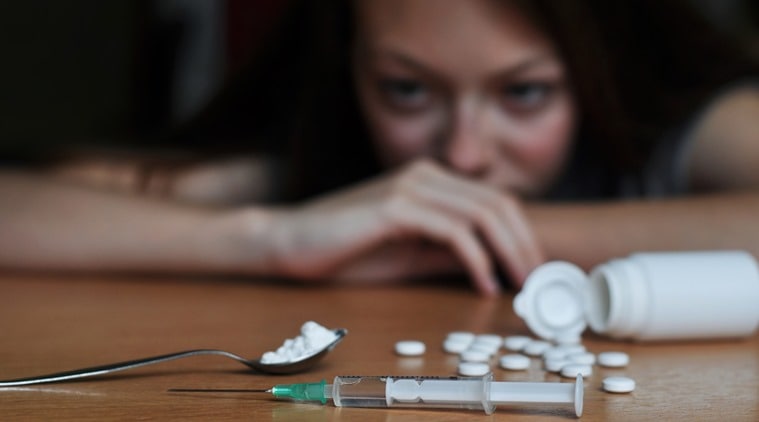How to Reintegrate After Drug Rehab
4 min read
The road to recovery from addiction is hard and often lonely. Once drug rehab is complete, many people struggle with the process of reintegrating into society and reclaiming their lives. It can be difficult to find the courage to start fresh, but it’s not impossible. Here are some tips for overcoming the challenges of reintegrating into society after completing a luxury drug rehab program.
Rebuilding Relationships
An important part of reintegration is rebuilding relationships with family members, friends, and significant others. Depending on how long you have been away in rehab, these relationships may need to be rebuilt from scratch or strengthened back up. It’s important to understand that just because you’re out of rehab doesn’t mean your recovery journey is over – it has simply shifted gears to a different phase. This means that while rebuilding relationships, you should always prioritize your sobriety and recovery plan above all else.
Developing a Support System
It can be hard to find support and acceptance after rehab. It’s important to develop an understanding of who you can turn to when times get tough or when you need help staying on the right path. This could include family members, friends, sponsors, counselors, and other people in recovery.
Finding New Hobbies
Once out of rehab, it can be helpful to find new hobbies or activities that bring joy into your life and help keep you busy. Whether it’s joining a book club or taking up yoga classes, having an activity that brings meaning into your life can do wonders for your mental health and overall wellbeing. By engaging in activities that don’t involve drugs or alcohol, you will have an easier time avoiding situations where relapse could occur.
Treatment Plans
It’s important to remember that drug rehabilitation doesn’t end when you leave the facility; rather, it continues as part of your ongoing recovery plan outside of formal treatment settings. To ensure successful integration back into society, make sure you have a good treatment plan in place before leaving rehab so that there is a clear path for continuing your progress towards sobriety post-rehabilitation. This could include regular meetings with a therapist or support group leader who will help guide you through any issues or triggers that may arise during this period of transition in order to stay on track with your sobriety goals.
Adopting Healthy Habits after Drug Rehab
Drug rehab is an important first step towards overcoming drug addiction, but it’s only the beginning of a life-long journey of recovery. After completing drug rehabilitation, it is important to continue building on the hard work accomplished during treatment by developing and maintaining healthy habits. Adopting healthy habits can help prevent relapse and ensure long-term sobriety.
Establishing a daily routine is one way to promote sustained sobriety. Scheduling time for activities such as exercise or meditation can help keep people on track and provide structure that can reduce stress and anxiety. Creating a daily schedule also helps people stay organized, prioritize tasks, and manage their time more effectively.
Reintegrating back into society after completing a drug rehab program can seem daunting at first but it doesn’t have to be overwhelming if done right! The key is taking small steps every day towards reclaiming your life and staying focused on maintaining sobriety at all costs. Rebuild relationships slowly but surely, engage in activities that keep you busy but also bring joy into your life, and create a comprehensive treatment plan with guidance from professionals so that there is always a clear path forward towards continued success in recovery! With the right tools and mindset in place, transitioning back into normal life post-rehab can be easier than expected!
Alternative Treatments for Addiction
Alternative treatments for addiction in a drug rehab facility may include holistic therapies, such as yoga, acupuncture, massage therapy, and art or music therapy. These types of therapies are designed to help individuals develop coping skills and build psychological resilience. Additionally, mind-body approaches may involve meditation and relaxation techniques that can be used to reduce stress and improve mental health.
In addition to holistic therapies, some drug rehabilitation facilities offer cognitive behavioral therapy (CBT) programs. This type of treatment focuses on helping individuals identify triggers that lead to the urge to use drugs along with teaching strategies for managing cravings and avoiding relapse. Other possible alternative treatments might include equine therapy or animal-assisted activities that involve working with animals such as horses or dogs in a therapeutic setting.
In addition to the treatments mentioned above, drug rehab facilities may also provide other services such as support groups, relapse prevention programs, and educational classes. These additional services can help individuals learn about addiction and build a strong foundation for recovery. By providing access to these types of alternative treatments, drug rehabilitation facilities are able to better meet the needs of those struggling with addiction and help them on their journey to sobriety.



